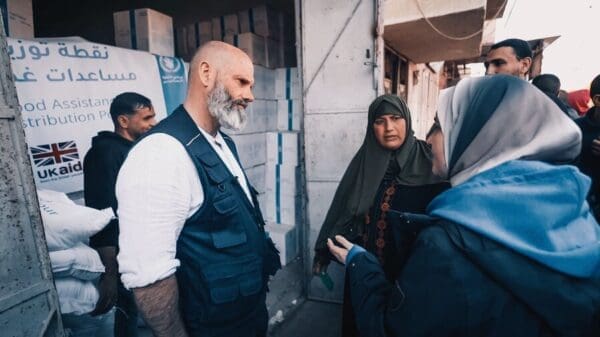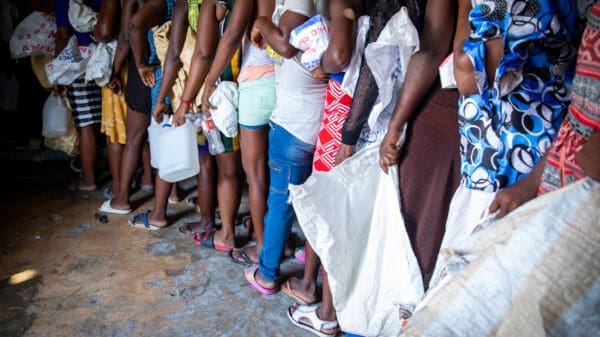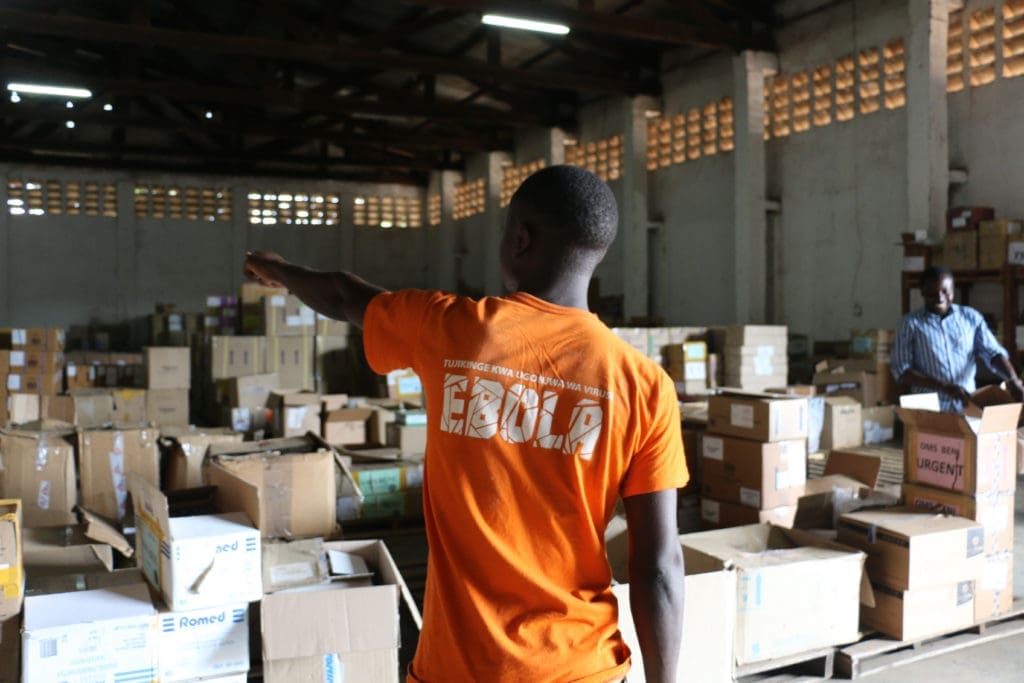
The Ebola Epidemic Is Back. This Is How Food Can Help End It.
In episode 37 of Hacking Hunger, we talked to Jacques David, WFP communications officer about hunger, Ebola and conflict in the Democratic Republic of Congo. Listen to the episode above. You can also view a full transcript of the episode here.
When Ebola spread through Western Africa in 2014, it killed more than 11,000 people. Now it’s back – and the Democratic Republic of Congo (DRC) is at its epicenter in a critical phase.
Since November of last year, more than 3,200 people in the DRC have contracted Ebola. Of those, more than 2,100 have died. The Ebola virus kills in terrifying ways – shutting down the body’s organs and draining victims of the fluids that keep them alive. It’s extremely contagious. Even dead bodies can transmit the disease, so traditional burial practices must often be uprooted.
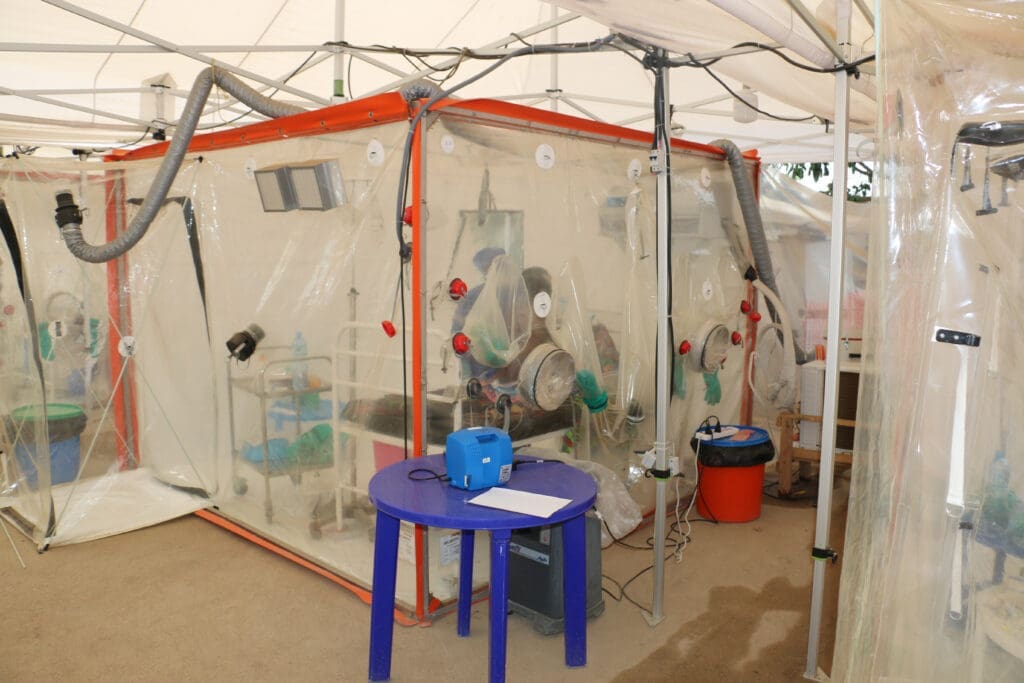
An Ebola treatment center in Beni, Democratic Republic of Congo.
Nine months into the response, the epidemic is mostly contained within the provinces of Ituri and North Kivu and South Kivu. But threat to neighboring countries remain, and isolated cases have been reported in neighboring Uganda.
One approach that has helped curb the spread of disease is to trace people who might have contracted the virus and limit their movements. This is why the U.N. World Food Programme (WFP) is distributing weekly food parcels to people suspected of carrying Ebola, so that they don’t need to leave their homes to buy food while under medical observation. The more suspected cases stay in one place, the less likely the virus will spread. The food WFP delivers – a large sack containing rice, beans, oil and salt – is an incentive to minimize movement and are part of a containment strategy.
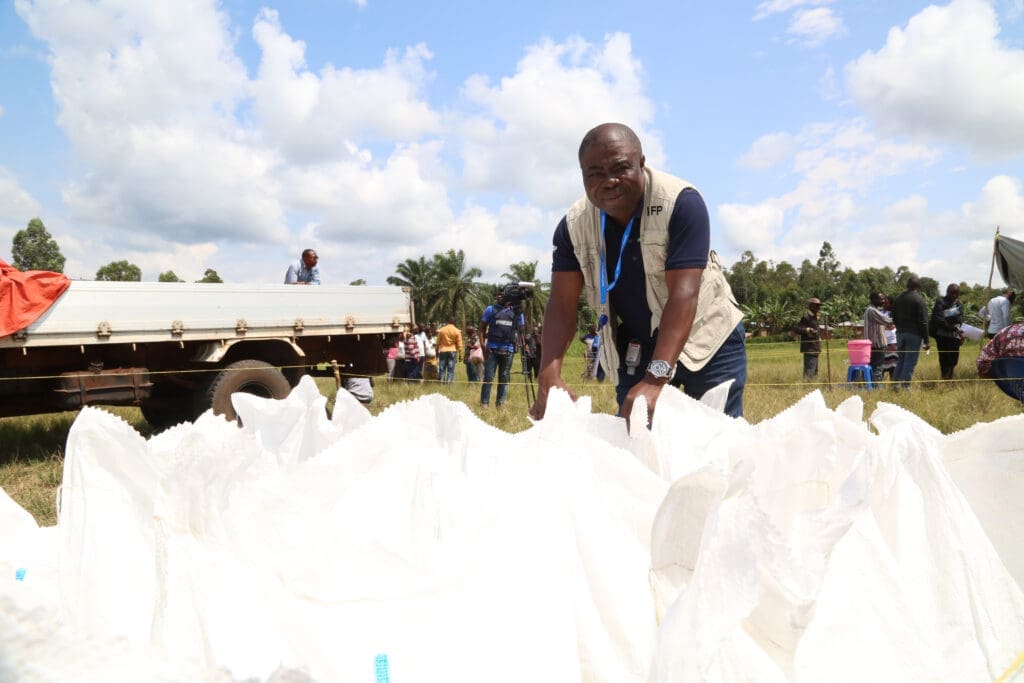
Pierre Tahe, a WFP program officer gets ready to hand out food rations to beneficiaries at a WFP food distribution point for Ebola contacts in Mukulia village near Beni in North Kivu, DRC.
The situation in the DRC has been made worse by insecurity. This is the first time in history that an Ebola epidemic is occurring in an active conflict zone. Jacques David, a WFP communications officer who has served in DRC for five years, explains the web of conditions that make response challenging.
“The Ebola crisis in the DRC is one of the most complex situations in which humanitarian organizations have had to respond for a number of reasons,” Jacques explained. “In addition to conflict and poverty, many people do not believe that the virus really exists. Some think that it’s witchcraft or something.”
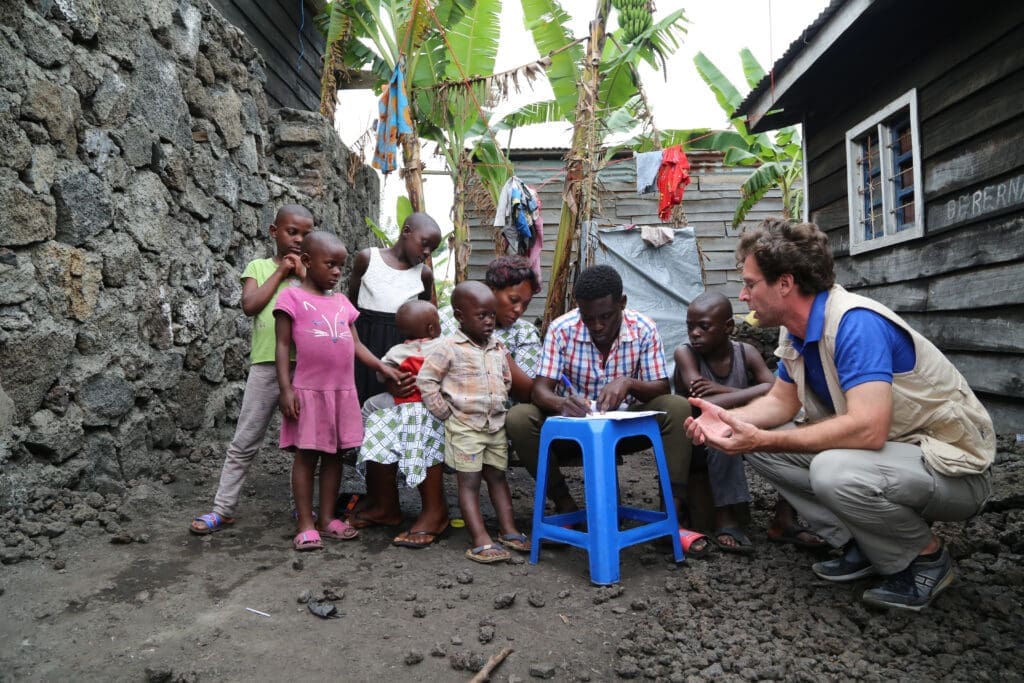
Esperance Nabintu (lady seated holding child), a 42-year-old survivor of Ebola and her children talk to Jacques David.
“And then there’s also a general mistrust toward humanitarian organizations,” Jacques continued. “Because of this, families are not taking their loved ones to hospitals, so many of these deaths are taking places in communities, which contributes to contamination and further infection.
All of these reasons make supporting this crisis challenging,” Jacques continued, “but they also demonstrate why food is such a critical part of response. In addition to containment, delivering food builds trust and goodwill. And the nutrients we provide are critical to helping patients recover. Receiving good food regularly – especially when you are otherwise food insecure – is necessary for your body to heal.”
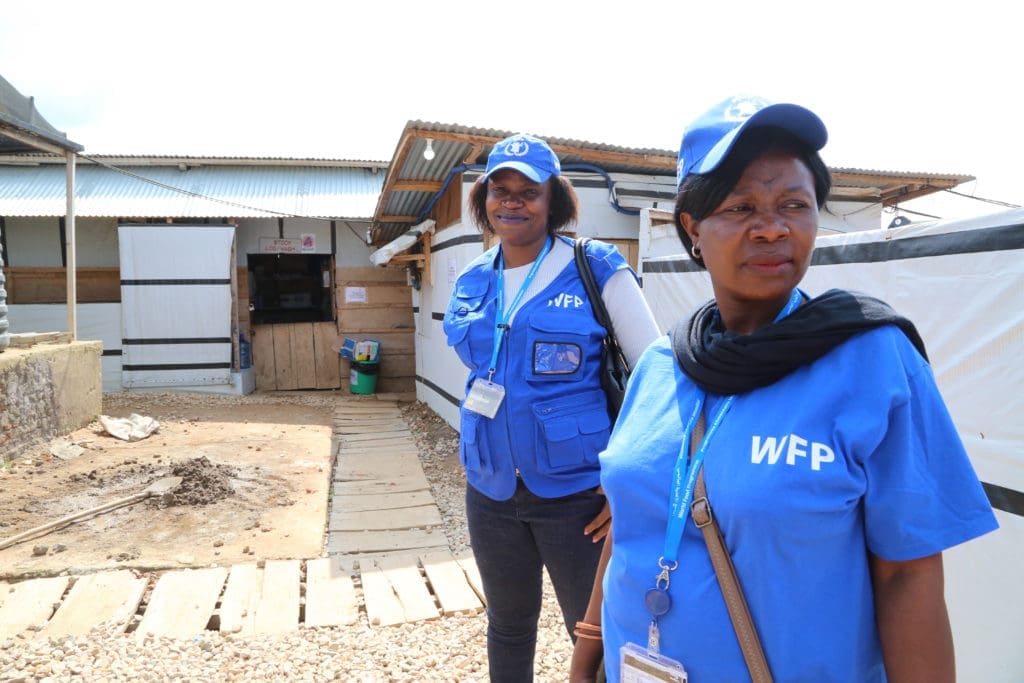
WFP staff members at the Ebola Treatment Center (ETC) in Beni, North Kivu, DRC.
Despite the overwhelming challenges, Ebola responders are working around the clock to ensure people get the information, care and treatment they need. These responders include WFP staff like Jacques, as well as medical providers and people with logistics expertise. After all, the process of getting food to patients in hard-to-reach war zones is anything but easy.
Fortunately, WFP is a logistics expert and does whatever it takes to reach people with urgent support. WFP not only delivers food to this emergency, but also supplies the entire humanitarian community with the medicine and resources they need to respond.
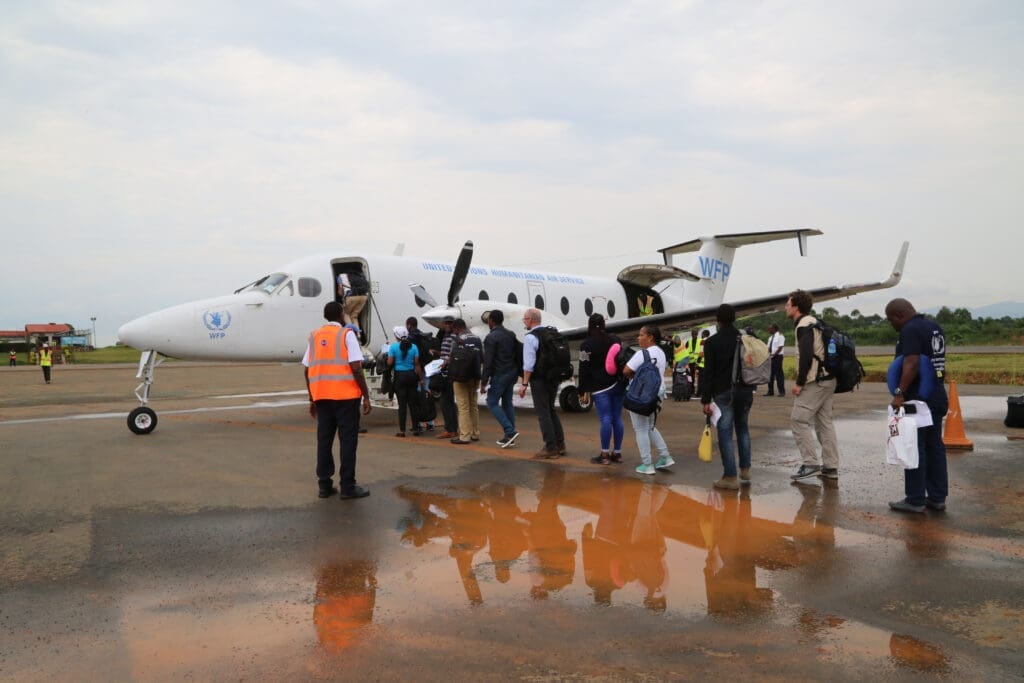
Humanitarian personnel boarding a United Nations Humanitarian Air Service (UNHAS) flight at Beni Airport in North Kivu, DRC. WFP provides essential logistical support in the region.
“We provide warehouses, trucks and even camps to host the medical and humanitarian staff in some Ebola hotspots,” Jacques said. “So, we are really giving a big logistical support. In fact, through the United Nations Humanitarian Air Service, which WFP operates, we’ve flown 26,000 Ebola response workers to hard-to-reach areas in DRC. Logistic is something that people don’t usually see but it’s an essential component of any humanitarian operation: without that, nothing can be implemented on the spot.”
***
WFP is doing everything it can to contain and end the Ebola outbreak in DRC. Thus far, thanks to the efforts of the entire humanitarian community, it remains less severe than the one that ravaged West Africa a few years back. But the threat still remains, and without further support, there could be disastrous results.
“Globally, WFP has planned to assist 5 million people by the end of 2019 and we still need $157 million to fund the rest of our food and cash distribution operations until February 2020,” Jacques said. “With this money, we also plan to support malnourished women and children and school feeding program; It’s really the time to do something for these people.”
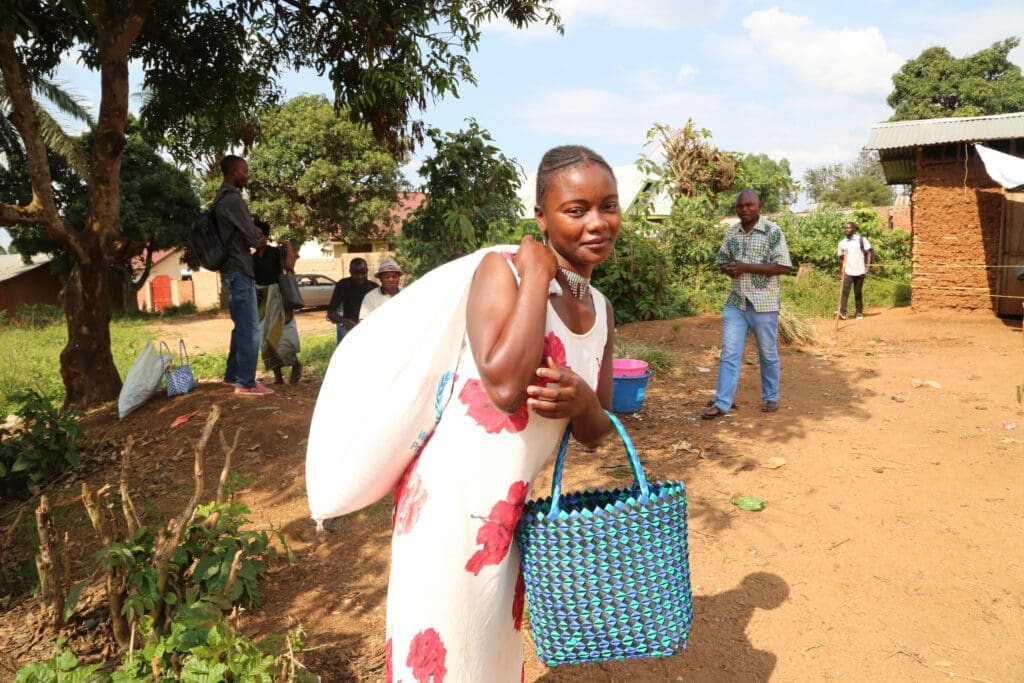
Ghislaine is an 18-year-old whose younger brother survived Ebola. She received food assistance from WFP as a direct Ebola patient contact. Food assistance plays a key role in containing the spread of the Ebola.
But what if these needs aren’t met? We asked Jacques about the worst-case scenario.
“If we don’t receive the funding,” he said, “it will mean that people already deprived of many things become even more vulnerable because they won’t receive the only food they can possibly access locally to eat and heal. They will look elsewhere, and the virus will spread. Their lives – and that of their communities – will be even further at stake.
So of course, I hope for funding,” Jacques continued, “but most of all I hope for stability and peace. That’s the best way to solve the crisis in DRC right now. Because once there is peace, people can heal, return to their villages, and start feeding themselves once again. At WFP, we are doing everything we can to make that dream a reality.”
